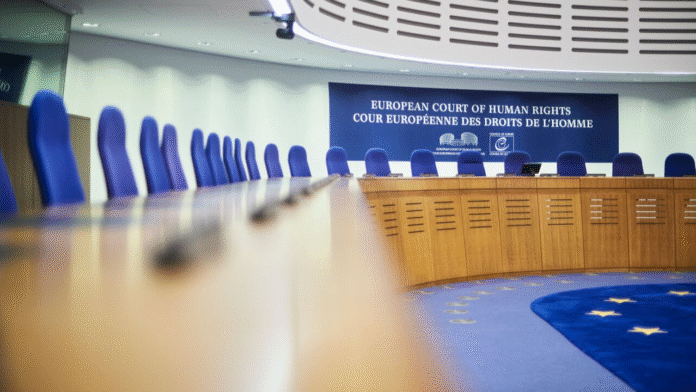Turkey is the leading country in the number of pending cases before the European Court of Human Rights (ECtHR), with 21,800 applications awaiting judgement, representing 34.7 percent of the total, according to recent court data.
The figure puts Turkey far ahead of the second-place country, Russia, which currently has 8,300 pending cases before the court, followed by Ukraine with 7,450.

Rights advocates say the data reflects the fragile state of Turkey’s legal system after years of escalating repression, institutional erosion and politically motivated prosecutions under the government of President Recep Tayyip Erdoğan.
Turkey has seen a sharp rise in applications in recent years, largely fueled by the government’s broad and vague counterterrorism laws, which rights groups say have been abused to silence dissent. These laws have justified the arrest, prolonged pretrial detention and conviction of thousands in the aftermath of a failed coup on July 15, 2016, with more than 126,000 people convicted on charges of alleged links to the faith-based Gülen movement.
Erdoğan has been targeting followers of the movement, inspired by the late Muslim cleric Fethullah Gülen, since corruption investigations in December 2013 implicated him as well as some members of his family and inner circle.
Dismissing the investigations as a Gülenist coup and a conspiracy against his government, Erdoğan began to target the movement’s members. He designated the movement as a terrorist organization in May 2016 and intensified the crackdown on it following the abortive putsch in July of the same year that he accused Gülen of masterminding. The movement strongly denies involvement in the coup attempt or any terrorist activity.
These prosecutions form a significant share of Turkey’s ECtHR caseload, with landmark rulings highlighting systemic issues. In Yüksel Yalçınkaya v. Türkiye, the court’s Grand Chamber ruled that Turkey had systematically violated the applicant’s rights to a fair trial enshrined in Article 6 of the European Convention on Human Rights (ECHR), no punishment without law (Article 7) and freedom of association (Article 11). The case drew attention to Turkey’s reliance on digital data, particularly the ByLock messaging app, as decisive evidence in terrorism-related trials, often without examining individual actions or intent.
ByLock, once widely available online, has been considered a secret tool of communication among supporters of the movement since the coup attempt in July 2016, despite the lack of any evidence that ByLock messages were related to the abortive putsch.
The court described the practice as part of a broader, systemic failure that could impact tens of thousands of defendants and called on Turkey to implement structural legal reforms to prevent further violations and align its judiciary with European human rights standards.
Despite the ruling, a high criminal court in Turkey retried Yalçınkaya and reaffirmed his conviction based on his bank account at the now-closed Bank Asya, membership in a labor union linked to the movement and use of ByLock, the last of which the ECtHR found problematic.
Turkey has refused to comply with ECtHR rulings in other well-known cases as well. In the cases of Selahattin Demirtaş, the imprisoned former leader of the pro-Kurdish Peoples’ Democratic Party (HDP), and Osman Kavala, a philanthropist and rights advocate, the court found multiple violations of the rights to liberty, expression and a fair trial. Both detentions were deemed politically motivated.
In response to Ankara’s persistent refusal to comply with the Kavala ruling, the Council of Europe launched rare infringement proceedings in 2022, taken only the second time in the body’s history.
The Parliamentary Assembly of the Council of Europe (PACE) also adopted a resolution on April 9, urging Turkey to fulfill its obligations under the European Convention on Human Rights by implementing key judgments of the ECtHR. International observers say the Turkish judicial system has suffered “irreversible damage” during the tenure of the Justice and Development Party (AKP), eroding public confidence in the rule of law. Turkey was ranked 117th among 142 countries in the World Justice Project’s 2024 Index.















